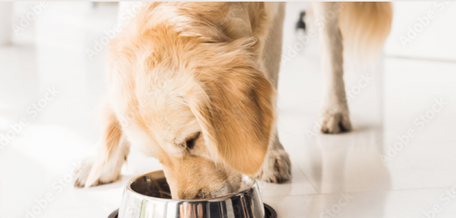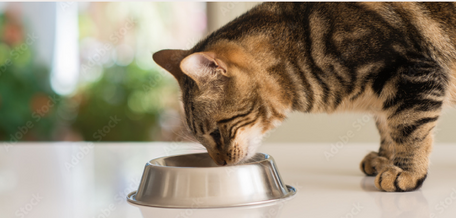Feeding your cat the right food can feel like a puzzle, especially with so many choices out there. Whether your furry friend is a playful kitten, an independent adult, or a wise senior, their nutritional needs change as they grow. Finding the best cat food for each life stage is key to keeping them healthy and happy. Let's explore what to look for at every stage of your cat's life.
Key Takeaways
-
Kittens need food that's high in calories and nutrients for growth.
-
Adult cats require a balanced diet to maintain their energy and health.
-
Senior cats benefit from food with fewer calories and more fiber.
-
Special diets might be needed for cats with specific health issues.
-
Always consult your vet when choosing the best cat food for your pet.
Section 1: Kitten Nutrition
Kittens are like little bundles of energy, and they need the right fuel to keep them going. From the moment they're born until they hit their first birthday, their nutritional needs are quite different from adult cats.
Weaning and Transition to Solid Food
Kittens usually start showing interest in solid food at about 3 to 4 weeks old. Initially, it's best to offer them a mixture of canned food and water to make it soft. As they grow, you can gradually reduce the water content. Once they're comfortable with this, you can introduce dry food, again making sure it's easy for them to chew by soaking it if necessary. BJ's Raw Pets' Premium Cat Food Mix is an excellent budget friendly choice for this stage, as it provides the essential nutrients they need.
Nutritional Needs of Kittens
Kittens require more calories, protein, and fats than adult cats. Their diet must be rich in calcium and phosphorus to support healthy bone development. It's crucial to choose cat foods by age group, choose food specifically formulated for kittens, as adult cat food won't meet their energy needs. Keep an eye on the ingredient labels and opt for kitten-specific formulas.
Feeding Schedule
Feeding kittens isn't just about what they eat but also how often. They should have about 1/2 to 1 cup of dry kitten food or 6 to 9 ounces of wet food per day, divided into at least three meals. This frequent feeding schedule supports their rapid growth and high energy levels.
As your kitten grows, maintaining a balanced diet is key to setting them up for a healthy adulthood. Consult your vet to tailor feeding plans as your kitten's needs change.
Tips for a Smooth Transition
-
Start Slow: When introducing new foods, do it gradually to avoid upsetting their stomach.
-
Monitor Their Weight: Keep an eye on their weight to ensure they're growing at a healthy rate.
-
Consult Your Vet: Regular check-ups can help you adjust their diet as needed.
By focusing on these aspects, you can ensure your kitten grows into a healthy and happy adult cat.
Section 2: Adult Cat Nutrition
Adult cats, generally those aged 1 to 7 years, have specific nutritional needs that differ from those of kittens or senior cats. Their diet should maintain a healthy weight, provide energy for daily activities, and support overall health.
Nutritional Needs
Adult cats require a balanced diet rich in protein, moderate in fats, and low in carbohydrates. Protein is crucial as it helps maintain lean muscle mass and supports bodily functions. Fats provide energy and aid in the absorption of fat-soluble vitamins. It's important to ensure the food contains essential nutrients like taurine, omega fatty acids, and vitamins A and E.
Types of Food
Choosing between dry, wet, or a combination of both depends on your cat's preference and health needs:
-
Dry Food: Convenient and helps with dental health, but ensure it's high quality.
-
Wet Food: Higher moisture content, which is beneficial for urinary tract health.
-
Combination: Offers benefits of both, providing variety and balance.
Feeding Guidelines
The amount of food depends on factors such as activity level, size, and metabolism. Typically, adult cats should eat twice a day. For precise feeding amounts, refer to a wet food feeding chart to help determine the right portion sizes based on calorie content.
Special Diets
Some adult cats may need special diets due to health conditions like kidney disease. In such cases, selecting the best cat food with low phosphorus and high moisture content is crucial. Consider options like BJ’s Raw Pet Food for a balanced diet that supports kidney function.
Managing your cat's diet carefully can prevent health issues and promote a long, happy life.
Transitioning to New Foods
When switching foods, do so gradually over a week to prevent digestive upset. Start by mixing a small amount of the new food with the old, gradually increasing the new while decreasing the old.
Feeding Tips
-
Avoid free-feeding to prevent overeating and obesity.
-
Monitor your cat's weight and adjust food intake as needed.
-
Consult with a vet for personalized dietary advice, especially if considering a homemade diet.
By understanding and addressing the unique nutritional needs of adult cats, you can ensure they remain healthy and active throughout their prime years.
Section 3: Senior Cat Nutrition
As cats age into their golden years, their dietary needs begin to shift. This stage of life, typically starting around 7 to 10 years, requires careful attention to their changing nutritional requirements. Feeding your senior cat the right diet is key to maintaining their health and vitality.
Understanding Nutritional Needs
Senior cats often need fewer calories than their younger counterparts. Their metabolism slows down, and they might become less active, leading to potential weight gain if their diet isn't adjusted. It's important to choose foods that are rich in protein but lower in fat.
-
Protein: Essential for maintaining muscle mass. Look for high-quality animal protein sources.
-
Fat: Reduced fat content helps prevent weight gain.
-
Fiber: Increased fiber can aid digestion and help manage weight.
-
Vitamins & Minerals: Ensure they receive adequate vitamins and minerals to support their aging bodies.
"As your cat ages, consider consulting with your vet to tailor a diet that meets their specific health needs."
Portion Control and Feeding Guidelines
Following the portion guide on the package is crucial. Typically, it suggests serving about 20 calories per pound of body weight to maintain a healthy weight.
Choosing the Right Food
There are many options available, from gently-cooked meals to specialized canned foods that cater to senior cats. Gently-cooked food is often recommended for its high digestibility and hydration benefits and is considered the best cat food for this stage.
Hydration
Older cats may not drink as much water as they should, so incorporating wet food into their diet can help maintain hydration levels.
Special Diets
Some senior cats may require special diets due to health issues like kidney disease or arthritis. Always consult with your vet for guidance on these needs.
Transitioning to a New Diet
Switching to a new food should be done gradually to avoid digestive issues. Mix a small amount of the new food with the current one, increasing the new food's proportion over a week or two.
Fresh vs. Canned Food
Consider the benefits of fresh food versus canned options. Fresh cat food often provides a balanced diet, though canned food can also be beneficial due to its moisture content.
In conclusion, paying attention to your senior cat's diet is essential for their well-being. Regular vet check-ups and a tailored diet can make a significant difference in their quality of life.
Section 4: Special Considerations
When it comes to feeding your cat, there are a few special considerations to keep in mind that can make a big difference in their overall health and happiness.
Dietary Needs for Special Health Conditions
Some cats might need a special diet due to health issues. For instance, a cat with kidney problems might benefit from a diet low in phosphorus. It's important to consult with your veterinarian to determine if your cat needs a special diet and what kind would be best.
Managing Pet Pickiness
Cats can be notoriously picky eaters, which can make feeding time a bit of a challenge. Here are some tips to help:
-
Variety: Offer different types of food, like wet and dry, to see what your cat prefers.
-
Gradual Transition: If you're switching foods, do it slowly to avoid digestive upset.
-
Temperature Matters: Some cats prefer their food at room temperature rather than straight from the fridge.
Understanding Nutritional Needs by Life Stage
Feeding your cat requires special considerations based on their life stage. Kittens need more frequent meals and higher calorie diets for growth, while senior cats may require fewer calories and adjustments to their diet to maintain health.
Importance of Balanced Nutrition
A healthy cat diet should consist of no more than 10% of calories from carbohydrates, emphasizing grain-free options. Wet food is generally recommended for optimal nutrition. Learn more about a healthy cat diet.
Exploring Raw Diets
Exploring raw diets can be beneficial for some cats, but it's crucial to ensure the diet is balanced. Raw diets often include complete meals, protein blends, and organ options. Discover the benefits of feeding raw and tips for transitioning to this diet here.
"Cats are creatures of habit, and changes in their diet can be met with resistance. However, with patience and the right approach, you can ensure your cat gets the nutrition they need."
When it comes to special considerations for your pet's diet, it's important to think about their unique needs. Every pet is different, and what works for one might not work for another. Make sure to check out our website for tips and products that can help you choose the best food for your furry friend!
Conclusion
Choosing the best cat food for your furry friend can feel like a big task, but it doesn't have to be. Whether you have a playful kitten, a laid-back adult, or a wise senior cat, there's a food out there that fits their needs. Remember, it's not just about age; consider their health, activity level, and any special dietary needs. Always check with your vet if you're unsure. They can help you figure out the best diet for your cat's unique lifestyle. And don't stress too much—finding the right food might take a little trial and error, but your cat's health and happiness are worth it.
Frequently Asked Questions
When should I switch my kitten to adult cat food?
Kittens can start eating adult cat food when they are about one year old. It's best to transition gradually to avoid upset stomachs.
What nutrients are important for kittens?
Kittens need extra calories, proteins, and healthy fats for growth. Look for foods with calcium and phosphorus for strong bones.
How often should I feed my adult cat?
Adult cats typically eat two meals a day. Ensure portion sizes are right to maintain a healthy weight.
What should I feed my senior cat?
Senior cats benefit from diets lower in calories but rich in essential nutrients. Consult your vet for the best options.
Is it okay to feed my cat food for all life stages?
Yes, some foods are designed for all life stages, but it's crucial to ensure they meet your cat's specific needs.
How do I transition my cat to a new food?
Mix the new food with the current one, gradually increasing the new food over a week or two to prevent tummy issues.
Can I free-feed my cat?
Free-feeding isn't recommended as it can lead to overeating. Scheduled meals help manage weight and monitor health.
What if my cat has special dietary needs?
If your cat has health issues, consult your vet. They might recommend a special diet tailored to your cat's needs.




















